Stroke survivor Katherine Wolf on finding God in suffering: 'There's hidden treasure in darkness'
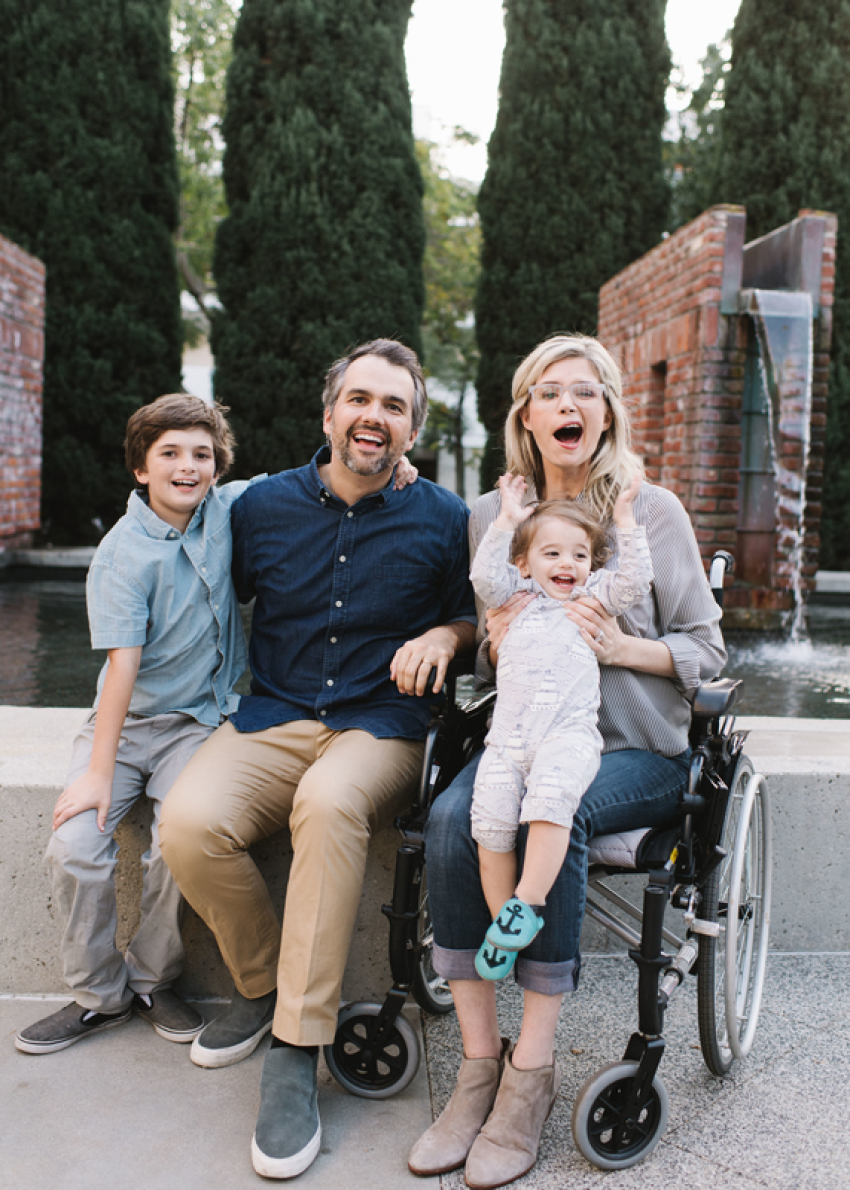
For many Christians in Western cultures, the idea that beauty can come from suffering is counterintuitive. There’s little room for pain and discomfort in a society that idolizes a life of safety and luxury.
But what if, instead of viewing suffering as a punishment, we chose to embrace it as a privilege that both sanctifies us and allows us to know and experience God at a deeper, more intimate level?
“In this life, we all want to get on board with the new life, blessings, and abundance of knowing Christ, but we’re certainly not willing to go through crucifixion and sacrifice to find communion with Jesus,” speaker and author Jay Wolf told The Christian Post. “When we are so averse to discomfort, we miss out on something so vital to understanding who Jesus is. We’re missing out on communion with Him and with humanity. We’re missing out on a deep level of compassion if we’ve never experienced hardship.”
For Jay and his wife, Katherine, the belief that suffering is not the end of the story has sustained them through unthinkable tragedy.
On April 21, 2008, Katherine, who was just 26 years old and a mother of 6-month-old James, unexpectedly experienced a brain bleed from a massive brain stem stroke that nearly killed her. After 16 hours of micro-brain surgery, Katherine miraculously lived but was left unable to walk, talk, or swallow. The former beauty queen and model was left with severe double vision, right ear deafness, and right-side facial paralysis.
“I had to learn how to find God in the midst of it,” Katherine said. “I learned that God’s goodness was not attached to my earthly circumstances, and God being good was not based on anything going on in the physical world. The cross put everything in perspective.”
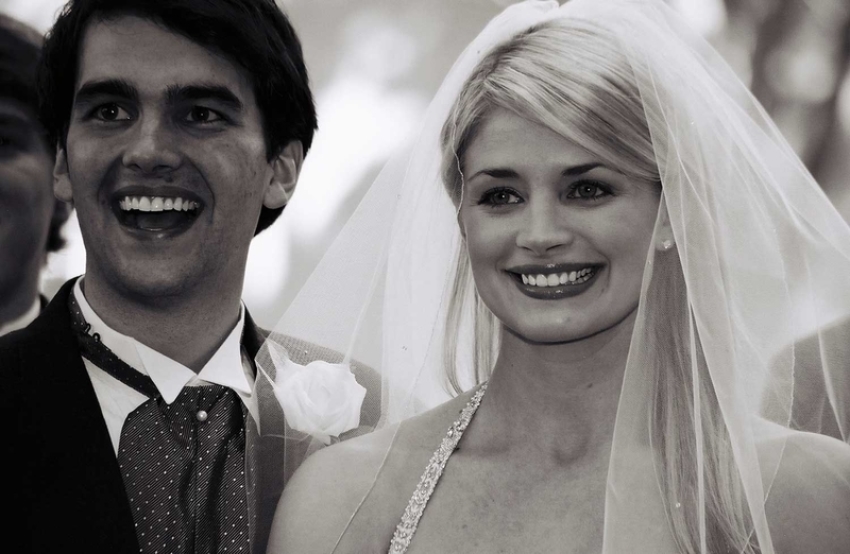
Today, the couple is behind Hope Heals, a nonprofit that serves to offer rest, resources and relationships to broken bodies, brains and hearts. They're also internationally-recognized communicators and advocates for those with disabilities. Recently, Sony Pictures optioned the rights to make “Hope Heals” a movie.
“Suffering well begins with not being so scared of the hard stories and really wrestling with the sad and bittersweet nature of life and not being afraid to talk about that and again find God in the midst of it,” Jay said. “We don’t need to be afraid of suffering because as believers, we can be confident that struggles will give us depth and a richness to our experiences with God and with one another.”
“What happens to you is less important than how you renarrate it, how you think about, how you find God in the midst of it. Are you a victim, or are you an overcomer?”
Jay and Katherine shared their powerful story in the bestselling bookHope Heals: A True Story of Overwhelming Loss and an Overcoming Love. In February, they released a second book titled Suffer Strong: How to Survive Anything by Redefining Everything, which Katherine described as a “how guide” when it comes to suffering well.
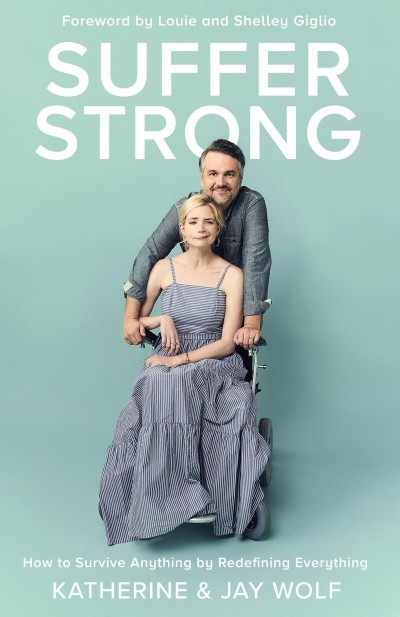
“We wanted to dispel the myth that joy can only be found in a pain-free life,” she said. “We summarize lessons we’ve learned and what we believe God has for us all amid suffering, things that have been really powerful and helpful for us.”
In the book, the couple details how to find hope not just amid life's great disappointments, but in the “little deaths and little losses" as well.
“If I can be faithful and release some of that control in the smaller disappointments and struggles, it's going to prepare my heart for when the bigger disappointments come," Jay explained. "I won’t be absolutely undone when life doesn’t turn out how I thought it was going to.”
In 2015, the Wolfs miraculously welcomed their second child, John Nestor Wolf, named after Katherine’s three-time-life-saving neurosurgeon, Dr. Nestor Gonzalez.
"Being a mother is my greatest joy," she said.
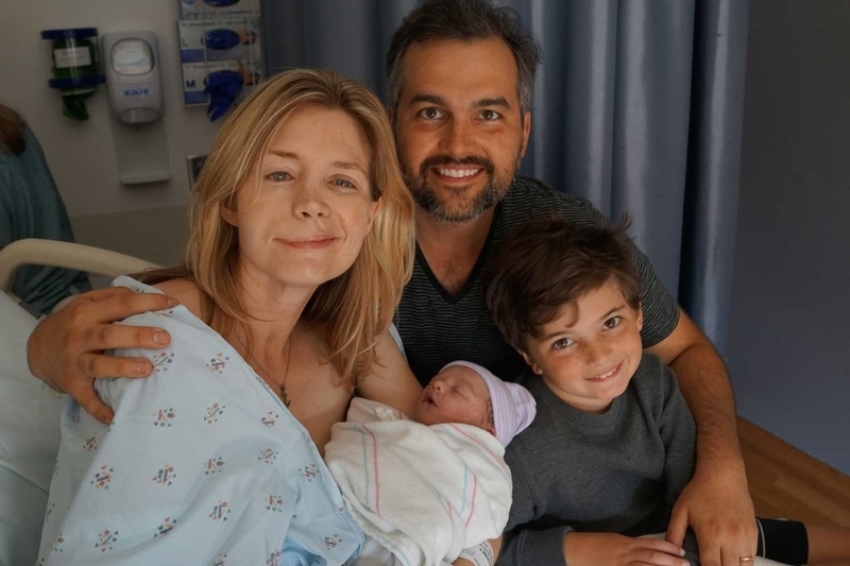
And while Katherine remains in a physical wheelchair, she pointed out that every human has multiple “invisible wheelchairs,” which she defined as “the things that are limiting us, constraining us; the painful things that happened in the past, the haunting memories, the shame, that keep us from living in the freedom that God wants for us.”
Jay added that while many view the wheelchair as the “ultimate sign of limitation and defeat,” it’s actually an “avenue of freedom” to those who are unable to walk.
“It’s this idea that recognizing your limitations helps you see the Kingdom of God in a whole new way,” he said. “What if your invisible wheelchair, your limitation was not just a thing you are bound to and constrained by? What if it is the very means through which you can find a new kind of flourishing in your life?”
When writing Suffer Strong, the Atlanta-based couple said they had “no idea” how relevant it would be in the coming months. The book was released in February, mere weeks before the novel coronavirus devastated the nation.
“It was not as though the world was super interested in a book about finding strength in your suffering,” Katherine said. “All of a sudden, when the coronavirus hit, it became very relevant.”
Added Jay, “A lot of people are struggling right now; they’re dumbfounded that something like this can happen. I think it’s beautiful that we get to grieve together — part of suffering well is being vulnerable enough to share in the struggle.”
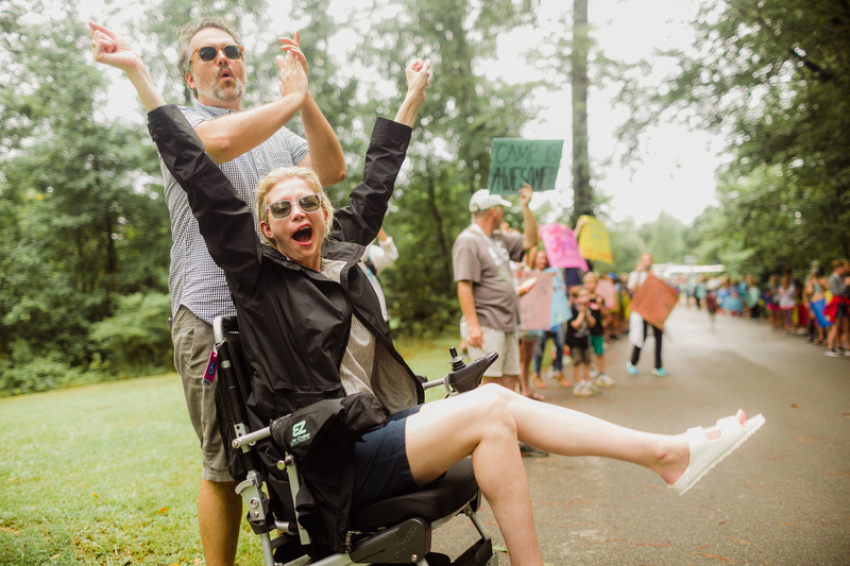
Amid the fear and anxiety many are experiencing in the wake of COVID-19, Jay offered the suggestion: “What if this is a profound gift in our lives? And how do we find that?”
“Seasons change; life won't always be this way, but it will be a new day for humans to do life around the world together again,” he said. “When that day comes, we want to be changed by this time in a way that creates a new kind of compassion and gives us a new connectivity to God and to each other in the world.”
Referencing 2 Corinthians 12:9, Jay stressed, “God's power is perfected not in our own competency but in our weakness. This is a time of clarity; when there are fewer distractions, we can see Him at work in ways we never would have otherwise. That’s the opportunity we all have right now.”
As part of their ministry, Jay and Katherine travel the country advocating for those with special needs, urging the Church to come alongside those with disabilities and their families. They also host Hope Heals Camp annually for families affected by disability.
According to Katherine, many churches are “no different than the world in not rising to the occasion with people with special needs.”
“We’re all scared of anything that acts, talks, or looks different than we do,” she said. “So much of engaging the special needs community is loving them regardless of differences. The Church of Jesus Christ should be the first to understand the need to love everyone He’s made.”
The special needs community, Jay pointed out, is the “largest unreached people group in the world,” adding: “There's a tremendous outreach opportunity for the church but many churches have insufficient programs and are lacking resources.”
“It’s a messy yet simple opportunity,” he said. “Even if churches don’t know specifically how to help, just saying, 'We see you, we want you,' would make a huge difference. The Kingdom of God and the Body of Christ in all its fullness can not be fully experienced unless we have everybody, with all of their unique gifts, participating.”
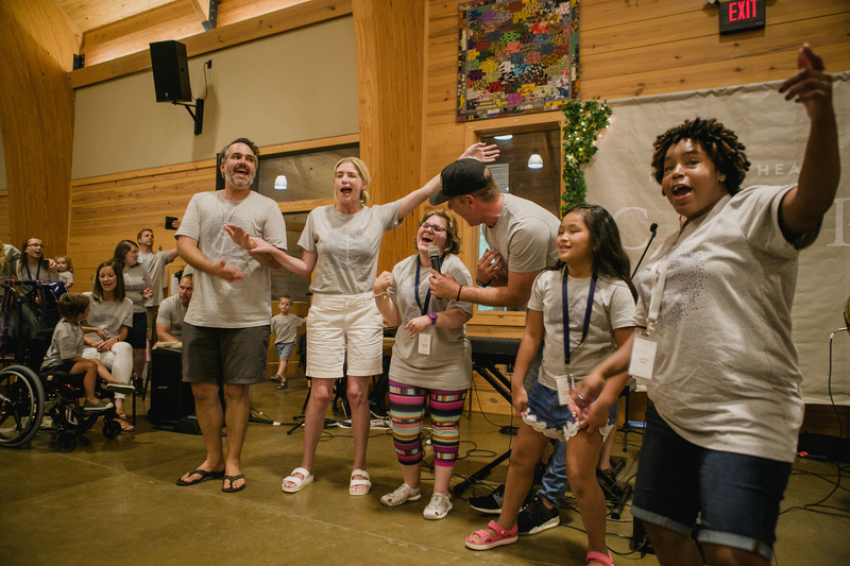
From those frustrated by life’s little disappointments to those suffering through life-altering loss, the Wolfs offered the reminder that God’s goodness never fails — and there is “hidden treasure in the darkness.”
“We’ve discovered this is true in our life,” Jay said. “If we have eyes to see it, we’ll find that God is making Himself known to us even in the places that look like the dark. There’s a sacred darkness that we don’t necessarily lean into as a Church. We often believe that darkness equals bad but, throughout Scripture, you see how new life often begins in the dark.”



























